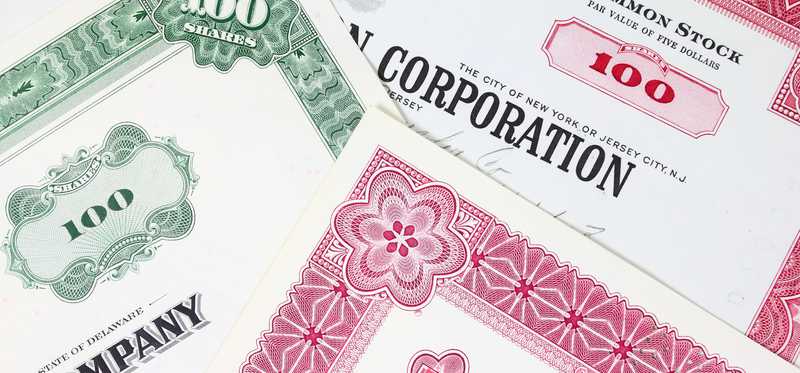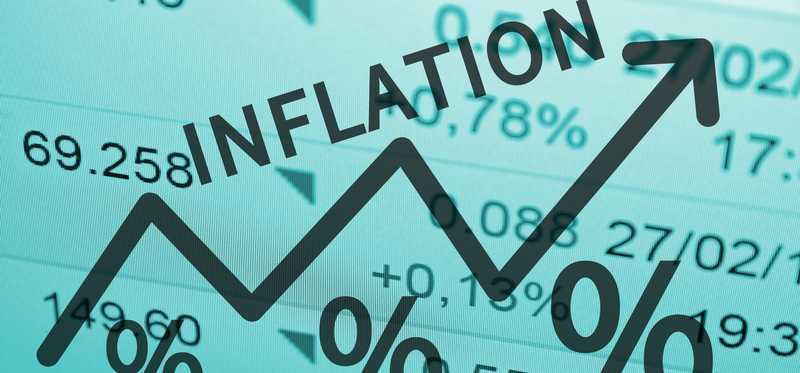The 5 Best Investments for Your 401(k) -- and the 5 Worst

The 5 Best Investments for Your 401(k) -- and the 5 Worst
A builder of wealth at your disposal
Your 401(k) can be an incredible tool for building wealth for your retirement. The combination of tax advantages and automatic investing can help you potentially reach a million dollar retirement or more.
Still, some investments are better than others when it comes to your 401(k). The following list of 10 represent five from among the best, and five from among the worst of the methods potentially available to you.
ALSO READ: Here's What It Takes to Become a 401(k) Millionaire
Previous
Next

Among the best: Low cost stock index funds
Over the decades, the stock market has delivered returns that compounded at around a 9.6% annualized rate. That’s enough to turn $500 invested each month into around $2.8 million over the course of a 40-year career. The challenge, though, is that for you to achieve the market’s returns, you need to own the market at as low of a cost as you can.
A mere 2% of performance lost to fees or other friction costs each year knocks more than $1.2 million off the value of those 40 years of investing. Index funds don’t have to make many decisions on what to own, and they don’t change holdings very often. Those factors help them keep both internal management and trading friction costs down to the bare minimum, enabling you to keep more of the returns for yourself.
Previous
Next

Among the worst: Your employer’s stock
Despite the long term value of stock investing, relying on your employer’s stock to fund your retirement account can be particularly dangerous. This is because if the company finds itself in serious trouble, you could find yourself both without a job and without your retirement savings at the exact same time.
To be clear, your company’s stock may be a wonderful investment, and if you receive shares or options as part of your compensation, you should certainly accept them. In addition, there’s nothing wrong with taking advantage of a discounted purchase plan to buy its stock if one is available to you and it’s a company you’d be willing to own if you didn’t work there. It’s just the combination of relying on the health of your employer for both a paycheck and your retirement that’s the level of excess risk.
Previous
Next

Among the best: Low cost investment grade bond funds
While stocks are a great way to build wealth, being overly concentrated in stocks when you need to spend money from your investments can lead to disastrous results. As a result, particularly as you get close to retirement, a low cost investment grade bond fund can make a superb addition to your 401(k). If you’re worried about the effect of rising interest rates on bond prices, feel free to stick with shorter-duration bond funds to reduce that risk.
While interest income from bonds is typically fully taxable as ordinary income the year you receive it, inside your 401(k), that money can compound tax deferred until you withdraw it. That gives you the opportunity to start getting the benefits of bonds while still deferring the tax consequences of owning those bonds until you actively need to spend the money.
Previous
Next

Among the worst: Municipal bonds
Despite the potential benefits of bonds in general, municipal bonds don’t make a good choice for your 401(k). This is because municipal bonds already have tax advantages for investors, including the fact that their interest payments can often be received tax free in an ordinary investing account.
As a result of that favorable tax treatment, municipal bonds don’t belong in a tax-deferred investing account like your 401(k). In fact, if you’re investing in a traditional 401(k), owning municipal bonds inside that plan may very well force you to pay taxes on income that otherwise would have been tax free to you. This is because most withdrawals from traditional 401(k) plans are taxed as ordinary income, no matter how the income being withdrawn was originally earned.
Previous
Next

Among the best: REIT index funds
Real Estate Investment Trusts -- or REITs -- are another type of income-oriented investment. REITs are specialized companies that invest primarily in real estate, such as offices, self-storage, malls, or apartments. Because they’re required to pay out at least 90% of their income in the form of dividends, REITs tend to offer high yields.
In addition, the earnings portion of REIT dividends are typically taxable as ordinary income, making them a potentially high-tax investment in an ordinary account. That combination of high yield and tough tax treatment mean that if you choose to own them, your 401(k) could very well be a great home for them.
Previous
Next

Among the worst: Limited partnerships
On the surface, limited partnerships might look like another income-oriented investment that might deserve a spot in your 401(k). That particular corporate structure is popular among energy infrastructure companies as it enables them to pass through income from their projects to their partners without paying corporate taxes.
Unfortunately, when partnerships are held inside a 401(k), the 401(k) itself can be subject to taxes. This is due to something called Unrelated Business Taxable Income. If your share of the partnership holdings inside your 401(k) generate at least $1,000 in UBTI in a year, your 401(k) custodian will have to file a tax return and pay taxes on behalf of that account. Paying immediate taxes on the account goes against a primary reason to invest in a 401(k), making limited partnerships a tough choice for those accounts.
Previous
Next

Among the best: Low cost target date funds
Target date funds provide the ultimate in one-stop-shopping when it comes to investing for retirement. Those funds start out investing aggressively when you’re young, then get more conservative over time until you reach retirement age. They’re quickly becoming the default option for people who are either automatically enrolled in their company’s 401(k) plans or who enroll and contribute but don’t pick a different investment.
If designed well, they can be a decent default choice for your 401(k) as they can reasonably implement the concept of a one-decision investment. For the fund to be decent, both the wrapper fund you directly invest in and the underlying funds it holds have to have very low expense ratios. In addition, you will also need to make sure the funds don’t get too conservative too quickly given the amount of time you have until you retire.
That said, even the best low cost target date funds are merely better alternatives to either not investing at all or having a default investment like a money market fund that has no real chance for growth. With a little bit of knowledge and a long term focus, you can give yourself a very good shot of beating even the best target date fund over time.
Previous
Next

Among the worst: High cost funds of funds
While they’re generally the best available default option in a 401(k), target date funds -- and other such "funds of funds" -- are very often a minefield of hidden traps and costs. First and foremost, both the fund you directly buy and the funds it invests in have fees, and the combined cost of the two is often hard to uncover. Those fees compound on top of each other, reducing the money available to do work for you.
In addition, the funds tend to start out fairly conservative and get more so over time. Vanguard (which is one of the best in the business) has portfolios that start with 10% in bonds, reach 50% bonds at retirement, and reach 70% bonds later in retirement. That’s even more conservative than the typical 60% stock/40% bond split that’s fairly common among professional financial advisers.
It may seem like there’s little wrong with being too conservative in an investing strategy. Still, consider the fact that the lower your overall returns, the more you have to save to reach your retirement target and the less you get to spend out of every dollar you do have saved.
There’s a time and a place for bonds, particularly as you get close to or are in retirement. But if your sole purpose of the bonds is to dampen the volatility of your returns as you’re actively saving, ask yourself what you’re likely giving up in order to have less wiggle in your account values.
Previous
Next

Among the best: TIPS bonds
For investors who are ready for bonds in their portfolios, Treasury Inflation Protected Securities -- also known as TIPS -- can be an alluring choice. In addition to their interest payments, TIPS get regular step ups (or down) in value based on inflation, better assuring they preserve their purchasing power over their lifetimes.
The challenge with TIPS is that the step up in basis is immediately taxable as income, despite the fact that you can’t spend that step up until matures, unless you sell the security. Especially when you’re dealing with low interest rate TIPS in a period of rising inflation, that taxable adjustment can generate a heavy tax relative to the cash income it produces.
Inside your 401(k), however, TIPS are treated like most other investments, and you don’t face an immediate tax on either the interest payment or the step up. That makes your 401(k) a great place to hold your TIPS.
ALSO READ: 4 Tips for Investing Wisely During Retirement
Previous
Next

Among the worst: Cash
Cold, hard cash is a very important asset to have and a critical part of your overall financial plan. Still, its primary benefits are your ability to spend it immediately or to have it available in the case of an emergency. It pays very little (if any) interest, and it doesn’t typically keep up with inflation.
Those characteristics make cash important to have, but to have in an ordinary checking or savings account, not in a 401(k). Save the valuable space in your 401(k) for assets that have a chance of providing you a decent return or that will otherwise benefit from being inside a tax advantaged account.
The Motley Fool has a disclosure policy.
Previous
Next
Invest Smarter with The Motley Fool
Join Over Half a Million Premium Members Receiving…
- New Stock Picks Each Month
- Detailed Analysis of Companies
- Model Portfolios
- Live Streaming During Market Hours
- And Much More
READ MORE
HOW THE MOTLEY FOOL CAN HELP YOU
-
Premium Investing Guidance
Market beating stocks from our award-winning service
-
The Daily Upside Newsletter
Investment news and high-quality insights delivered straight to your inbox
-
Get Started Investing
You can do it. Successful investing in just a few steps
-
Win at Retirement
Secrets and strategies for the post-work life you want.
-
Find a Broker
Find the right brokerage account for you.
-
Listen to our Podcasts
Hear our experts take on stocks, the market, and how to invest.
Premium Investing Services
Invest better with The Motley Fool. Get stock recommendations, portfolio guidance, and more from The Motley Fool's premium services.